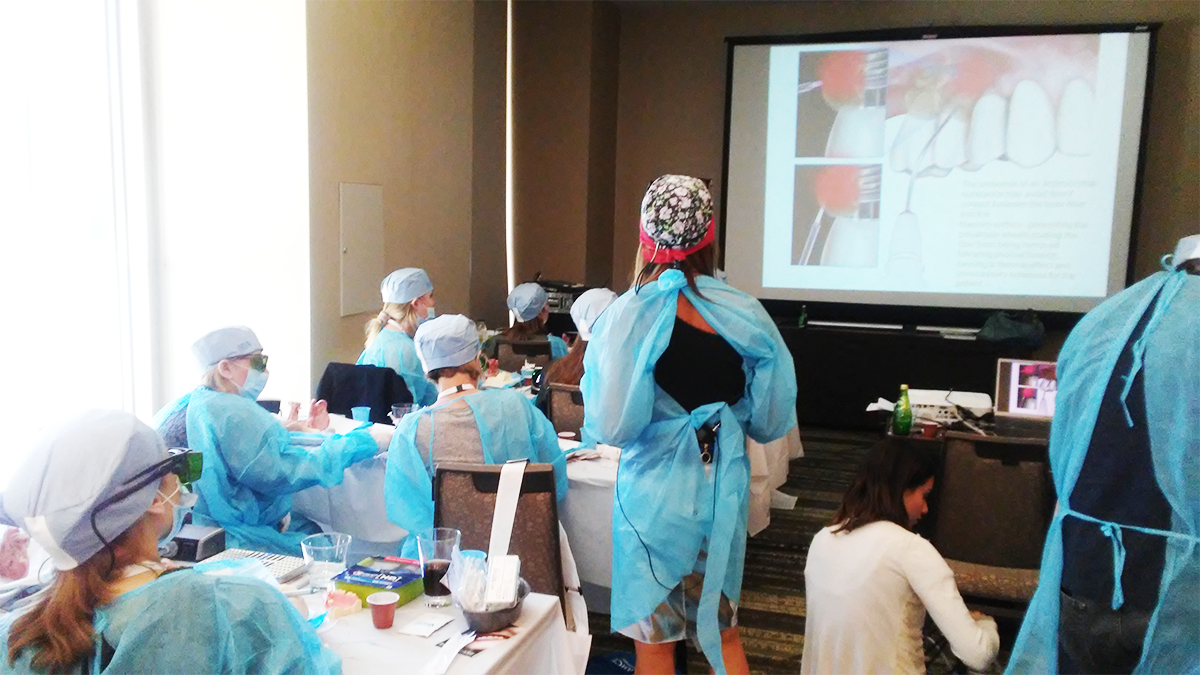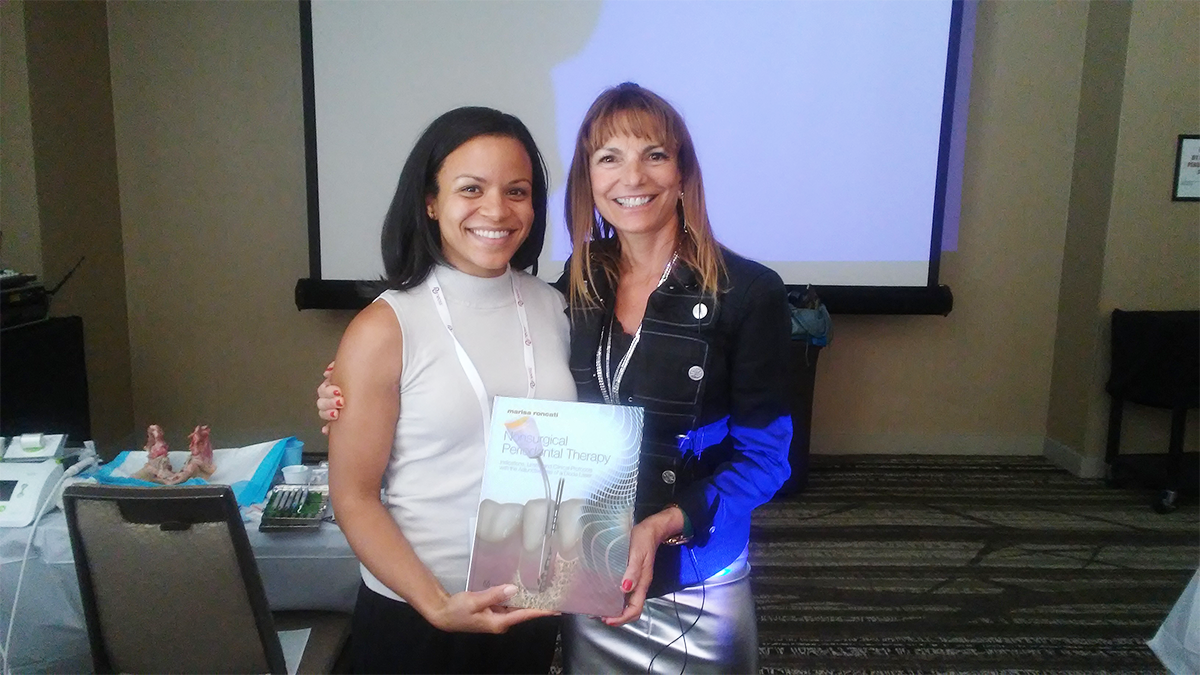
Marisa Roncati, RDH, DDS
The main goal of the two workshops I am presenting at ISPRD 2019 is to demonstrate my modified nonsurgical treatment protocols, which are validated by my 35 years of clinical experience and published in numerous scientific articles and textbooks. In some cases, nonsurgical treatment may be the only approach possible—even following diagnosis of severe periodontal or peri-implant diseases—due to concomitant systemic pathologies, economic problems, and/or other complications. These workshops are designed to provide participants with concrete clinical indications for practical nonsurgical treatment options. Afterward, each clinician will be able to select the best therapeutic options for his or her own clinical reality, choosing from a comprehensive range of materials, techniques, protocols, strategies, and tips and tricks.
The clinical value of a hands-on course is absolutely superior to a lecture. In addition to practicing techniques and strategies and experimenting with different materials (without first having to buy them), the participants also have the opportunity to be guided by an expert as they learn to implement modified techniques. They will be able to ask me questions and interact with their colleagues to clear up doubts or to have their own treatment modalities confirmed.
In some cases, nonsurgical treatment may be the only approach possible due to concomitant systemic pathologies, economic problems, and/or other complications.
These courses are also well suited to newly graduated dentists who are responsible for nonsurgical patient management in their clinics and who feel the topic of nonsurgical periodontology has not been sufficiently covered during their academic training. Many dentists around the world have to practice nonsurgical periodontology, especially in countries where the figure of the dental hygienist does not exist. While nonsurgical treatment has traditionally been given secondary importance compared with the patient’s other treatment needs, nonsurgical periodontal management is as essential as the patient’s motivation for homecare with regard to periodontal health. If the clinician believes the nonsurgical phase is as crucially important as the patient’s home care skills and can communicate that to the patient, thereby enlisting the patient as a treatment ally, then the clinician can positively influence all dental treatment outcomes.
Last but not least, these courses are addressed to dental hygienists who want to explore new techniques using the latest materials and technologies and who want to receive practical, simple, and effective advice for everyday clinical challenges. I look forward to meeting and interacting with each and every one of you who will attend!
Marisa Roncati, RDH, DDS
Nonsurgical Periodontal Therapy: Novel Modified Technique and New Protocols
and
Peri-implant Diseases: Nonsurgical Periodontal Approach
Two Half-Day Hands-On Workshops at ISPRD 2019
Register today at www.bostonperiomeeting.com

Dr Marisa Roncati presenting the scientific evidence behind nonsurgical periodontal therapy for patients with dental implants at Geistlich Pharma’s 2017 Symposium on Multidisciplinary Treatment Solutions for Peri-implantitis in Chicago, Illinois. Photo by James Foster for Geistlich Pharma.

Dr Marisa Roncati assists participants during her workshop on nonsurgical periodontal therapy at Geistlich Pharma’s 2017 Symposium on Multidisciplinary Treatment Solutions for Peri-implantitis in Chicago, Illinois.
On the Dental Hygienist’s Place at ISPRD

Shavonne R. Healy, MSDH, RDH, ICP
ISPRD is an important symposium for dental hygienists to attend because it will dramatically improve their clinical practice. Currently, dental hygiene programs lack comprehensive curriculum on implant dentistry. Dental implants are the standard of care for the replacement of teeth, and with worldwide concern about peri-implantitis and an emphasis on implant maintenance, I am pleading for the dental hygiene community to own the role we play and step up!
This year’s program includes two hands-on workshops presented by Dr Marisa Roncati that are especially relevant for dental hygienists. I first met Marisa at Geistlich Pharma’s 2017 Symposium on Multidisciplinary Treatment Solutions for Peri-implantitis in Chicago, Illinois. I flew from Washington, DC, specifically to attend her hands-on workshop on a nonsurgical approach to peri-implantitis. During her workshop, I was exposed to techniques and information that you never find at typical dental hygiene conferences. Marisa was intriguing to me for four reasons: (1) She is a dentist by way of dental hygiene, (2) she is a practicing clinician, (3) she published a textbook supporting advanced dental hygiene practices such as the use of a diode laser, and (4) she was presenting on a nonsurgical approach—music to my ears considering my patient population consists mainly of patients with advanced implant dentistry.
If you are that dental hygienist still stuck on titanium and plastic scalers, you have a responsibility to be here!
Shavonne R. Healy, MSDH, RDH, ICP
President, District of Columbia Dental Hygienists’ Association
Register today at a special discounted rate for hygienists at www.bostonperiomeeting.com!

Shavonne R. Healy and Dr Marisa Roncati pose with a copy of Dr Roncati’s book Nonsurgical Periodontal Therapy: Indications, Limits, and Clinical Protocols with the Adjunctive Use of a Diode Laser (2017).
